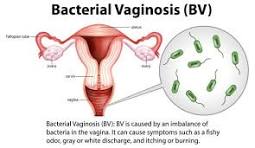INTRODUCTION
Health is wealth—a simple yet profound truth. One sickness can drain a
lifetime of savings, leaving individuals and families in distress. While modern
medicine has made remarkable strides in diagnosing and treating diseases, many
health conditions continue to defy medical solutions, pushing us to explore
alternative approaches.
NATURAL REMEDIES FOR DOWN SYNDROME
Down syndrome is a genetic condition caused by the presence of an
extra copy of chromosome 21, resulting in developmental and
intellectual delays. Individuals with Down syndrome may have
physical and cognitive differences, including distinct facial features,
slower growth, and developmental milestones, and may experience
varying degrees of intellectual disability. However, the severity of the
condition can vary widely among individuals. Early diagnosis, along
with appropriate medical, therapeutic, and educational interventions,
can greatly improve quality of life and help individuals with Down
syndrome live fulfilling lives. Support from healthcare professionals
and family involvement is key in managing the condition.
Natural and Therapeutic Approaches for Down Syndrome.
1. Physical Therapy
How it works: Physical therapy aims to help individuals with
Down syndrome improve their muscle tone, strength, and motor
skills. Regular therapy can also support the development of motor
coordination and balance.
Description: A physical therapist will work closely with the
individual to design a personalized therapy plan, which may
include exercises to improve posture, strength, and mobility. The
goal is to help the individual achieve physical independence and
improve overall function.
Usage: Consult with a healthcare provider to obtain a referral for
a qualified physical therapist. Therapy sessions should be tailored
to the individual’s specific needs and abilities.
Note: Physical therapy can also be incorporated into daily
routines and activities to encourage active participation in life.
2. Speech and Language Therapy
How it works: Speech and language therapy focuses on
improving communication skills in individuals with Down
syndrome. This may involve working on articulation, language
comprehension, and social communication.
Description: A speech therapist will assess the individual’s
speech and language abilities and create a personalized plan to
address any challenges. This therapy can help with verbal
communication as well as non-verbal skills such as gestures,
facial expressions, and social interactions.
Usage: Seek a referral from a healthcare provider to access
speech therapy services. Regular therapy sessions can help
individuals with Down syndrome express themselves more
effectively and interact with others.
Note: Speech therapy often includes activities to enhance
language skills, such as storytelling, play-based communication,
and social role-playing.
3. Early Intervention
How it works: Early intervention programs are designed to
support the development of children with Down syndrome from
a very young age. These programs aim to provide specialized
services that address developmental delays and prepare children
for school and socialization.
Description: Early intervention programs may include a
combination of physical therapy, speech therapy, occupational
therapy, educational support, and family counseling. These
services aim to promote early learning and foster social,
emotional, and cognitive growth.
Usage: Contact your local early intervention agency or healthcare
provider to inquire about available programs. Early intervention
typically starts before the age of 3 and continues through
preschool years.
Note: The earlier a child begins receiving intervention services,
the better the outcome in terms of cognitive, motor, and social
development.
Key Consideration
While these therapies and early intervention programs can provide vital
support, they should complement conventional medical treatments.
Always consult with healthcare professionals and specialists who can
provide tailored guidance and care plans for individuals with Down
syndrome. Natural remedies alone cannot replace evidence-based
treatments for these complex conditions.



